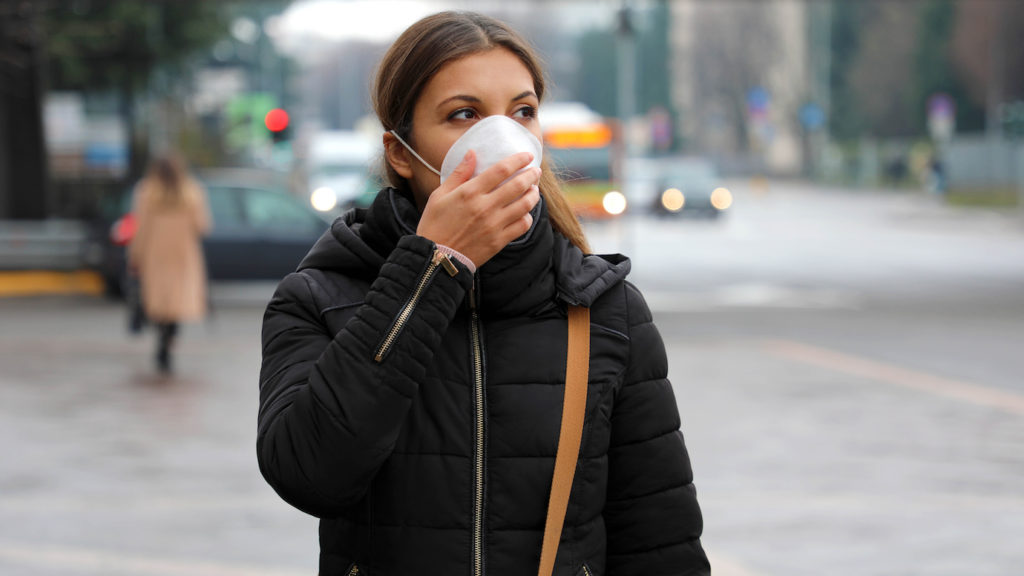Women’s leadership and contributions must take centre stage when it comes to COVID-19 resilience and recovery efforts, according to a new UN report.
UN Secretary-General António Guterres has urged governments to support women as leaders, with equal representation and decision-making powers.
He also said social safety nets must be expanded, unpaid work recognised and valued as vital to the economy, and more measures put in place to mitigate violence against women.
The report comes as the pandemic is affecting everyone, everywhere, in some way — but is ultimately deepening the inequalities that already exist in society, and is already having devastating social and economic consequences on women and girls.
With 60 per cent of women globally working in the informal economy, women are at greater risk of falling into poverty, and millions of jobs have already disappeared. The added existing pay and savings gaps that already put women behind, are further exacerbating these risks.
Meanwhile, unpaid domestic and caring responsibilities are increasing for women, especially due to schools closing and the increasing needs of older people.
Gender-based violence is increasing exponentially, with many women isolating and/or in ‘lockdown’ in their homes with their abuses, while some support services are being disrupted or are currently unavailable.
The pandemic is deepening pre-existing inequalities and exposing vulnerabilities in social, political and economic systems, according to the report.
And while early data reveals more men than women are dying from COVID-19, this report notes that women will be more adversely impacted through the reallocation of resources and priorities, including reproductive health services.
Writing on the UN report, Guterres said the informal economy, job losses and an increase in unpaid work are “combining as never before to defeat women’s rights and deny women’s opportunities.”
“Gender equality and women’s rights are essential to getting through this pandemic together, to recovering faster, and to building a better future for everyone.
The report comes as 2020 was supposed to be ground-breaking year on gender equality, but instead we find ourselves desperate to maintain what’s already been achieved.
Now, we’re faced with a true “test of the human spirit.”
“Recovery must lead to a more equal world that is more resilient to future crises,” write the report authors.
“It is crucial that all national responses place women and girls — their inclusion, representation, rights, social and economic outcomes, equality and protection — at their centre if they are to have the necessary impacts.”
“Women will be the hardest hit by this pandemic but they will also be the backbone of recovery in communities. Every policy response that recognises this will be the more impactful for it.”
As such, the UN policy brief share three ‘cross cutting’ priorities.
The first is to ensure women’s equal representation in all COVID-19 response planning and decision-making. Response and recovery efforts will be less effective across all sectors if they fail to include women. Women’s organisations should be represented and supported, especially as they’re often at the frontline of the response.
The second priority is to drive transformative change for equality by addressing the care economy, both paid and unpaid. This includes the largely underpaid jobs in the formal care economy, including in teaching and nursing. But it also must include the unpaid and invisible care work occurring.
The third includes targeting women and girls in all efforts to address the socio-economic impact of COVID-19. This means intentionally applying a gender lens when designing fiscal stimulus packages and social assistance programs in order to achieve greater equality, opportunities and social protection.
Stats listed in the report include:
- Women spend three times as many hours as men in unpaid care and domestic work
- The global gender pay gap is at 16 per cent, and rises to up to 35 per cent in some countries
- 740 million women work in the ‘informal economy’ globally
- 72% of the health care workers infected by coronavirus in Spain are female, along with 66% in Italy
- Domestic violence reports have increased by 30% in France, since lockdown commenced on March 17, other countries have reported up to a 30 per cent increase in women seeking help, following lockdown/stay-at-home orders
Risks to girls’ education
The UN report came the same day that the Malala Fund released its own report on what past shocks (including the GFC and Ebola epidemic) can teach us about mitigating the impact of pandemics, sharing an understanding on how girls’ education can be affected for years to come.
It estimates approximately 10 million more secondary school-aged girls could be out of school once the current crisis has passed.
“We find that marginalised girls are more at risk than boys of dropping out of school altogether following school closures, and that women and girls are more vulnerable to the worst effects of the current pandemic,” write the report authors.
The Malala report recommends countries aim to ensure girls can keep learning during school closures, along with factoring in gender planning for when education to resume, and continuing to finance education systems that benefit girls and boys equally.


